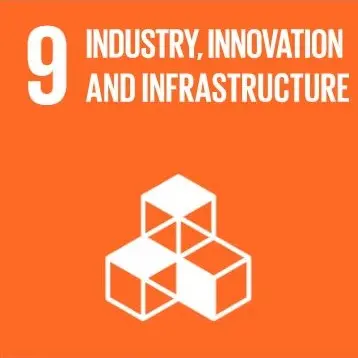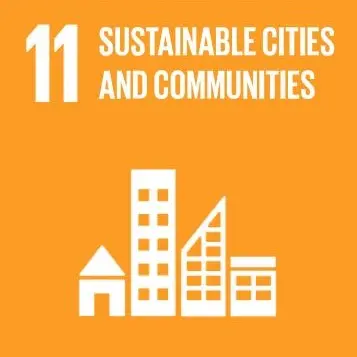Master Programme in Electronics/Automation (online) 60 cr
Progress is being made within electronics and automation at a very rapid rate. But the development of automation is a prerequisite for success in most industrial fields. Do you want to be a part of this expansion? Then this Master’s programme is something for you.
Credits
60 cr
Application code
HIG-19711
Application deadline
april 15, 2024
Form of education
Distance learning
Language
English
Study time
september 2, 2024–juni 7, 2026
Prerequisites
A completed Bachelor's degree, corresponding to a Swedish Bachelor's degree (180 cr), or equivalent academic qualifications from an internationally recognised university.
- Electronics as Major 90 cr
- at least 30 cr mathematics including linear algebra, multivariable analysis and stochastic processes
- courses Algoritms and datastructures 7.5 cr, Applied Mechanics II 7.5 cr, Signal Processing 7.5 cr, and Control Theory 7.5 cr or corresponding.
English language proficiency equivalent to (the Swedish upper secondary school) English course B/6.
Selection
Higher education credit
Credits
60 cr
Application code
HIG-19702
Application deadline
januari 15, 2024
Form of education
Distance learning
Language
English
Study time
september 2, 2024–juni 7, 2026
Prerequisites
A completed Bachelor's degree, corresponding to a Swedish Bachelor's degree (180 cr), or equivalent academic qualifications from an internationally recognised university.
- Electronics as Major 90 cr
- at least 30 cr mathematics including linear algebra, multivariable analysis and stochastic processes
- courses Algoritms and datastructures 7.5 cr, Applied Mechanics II 7.5 cr, Signal Processing 7.5 cr, and Control Theory 7.5 cr or corresponding.
English language proficiency equivalent to (the Swedish upper secondary school) English course B/6.
Selection
Higher education credit
About the programme
The aim of the programme is to give the student advanced knowledge of Electronics specialized in Automation. The Master studies are based on a previously achieved B. Sc. degree in Electronics, Physics, Electrical Engineering, or equivalent. An advanced theoretical program is offered, with assignments and projects with modern methods.
The programme is built up of following courses:
Sensors and Measurement Technology 7.5 cr
Statistical Signal Processing 7.5 cr
Multivariable and Nonlinear Control Systems 7.5 cr
Computerized Image Processing and Machine Vision 7.5 cr
Advanced Digital Control Systems 7.5 cr
Robotics 7.5 cr
Master's Thesis in Electronics 15 cr
Degree
Master of Science (60 Credits)
Fields within the programme Year 1
Automation – what the future needs
The programme specialises in sensor technology, signal processing, advanced control systems, robotics, industrial vision systems and image processing. In order to be a ble to test your knowledge there is a special laboratory available on-line.
Sustainable development
Being an MSc EE, with a major in Automation, graduating from University of Gävle you will be well equipped with skills and knowledge making you well suited to give our society a more sustainable direction of development.
Sustainable development



Learn about how the programme connects to the UN sustainable development goals 7, 9 and 11
Being an MSc EE, with a major in Automation, graduating from University of Gävle you will be well equipped with skills and knowledge making you well suited to give our society a more sustainable direction of development.
Your education will relate closely to several of the United Nations Sustainable Development Goals (SDG). In particular, the programme has bearing to SDG 7, 9 and 11, which relate to Affordable and Clean Energy; Industry, Innovation and Infrastructure; and Sustainable Cities and Communities.
7 Affordable and Clean Energy
Access to sustainable, reliable, and affordable energy is essential to combat today’s climatic changes. During your master studies, you will acquire skills that makes you especially suited to finding intelligent solutions that increase reliability, availability, and sustainability in the energy production and hence minimises the climatic footprint of industries and other infrastructure.
9 Industry, Innovation and Infrastructure
A functioning and resilient infrastructure is the foundation of every successful community. To face future challenges, our industries and infrastructure must become more including and sustainable. Advanced courses in e.g. control theory, robotics, and computer vision will develop your ability to develop innovative solutions that constraint the power consumption and excess material use in industrial processes and increase process reliability without compromising the performance.
11 Sustainable Cities and Communities
Over 50 % of the population globally lives in cities and the numbers are steadily increasing. Therefore, we need to build safe, healthy, and resilient cities. Building automation is essential to optimise the indoor climate in people’s homes and office buildings while at the same time decreasing the energy consumption. The programme offers courses about wireless sensor networks, sensors and sensor fusion, critical for successful deployment of building automation and in measuring and controlling outdoor air quality.
This page was last updated 2024-04-17

